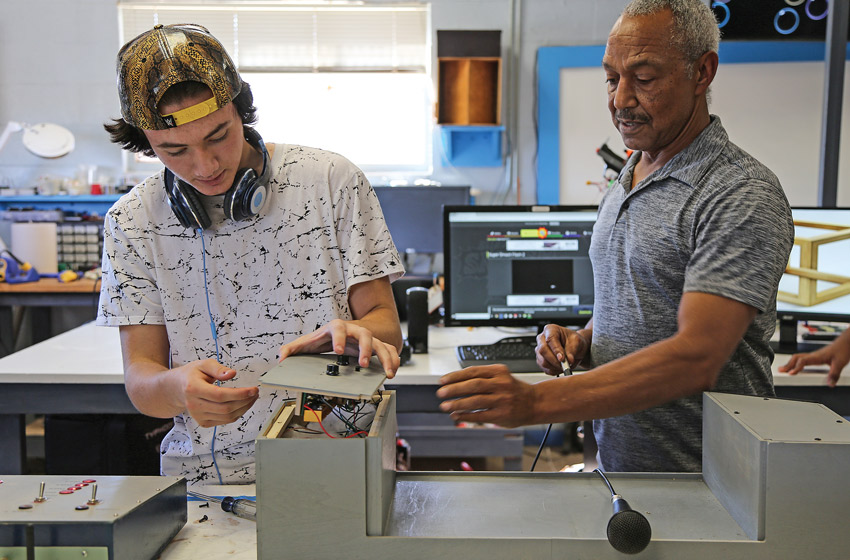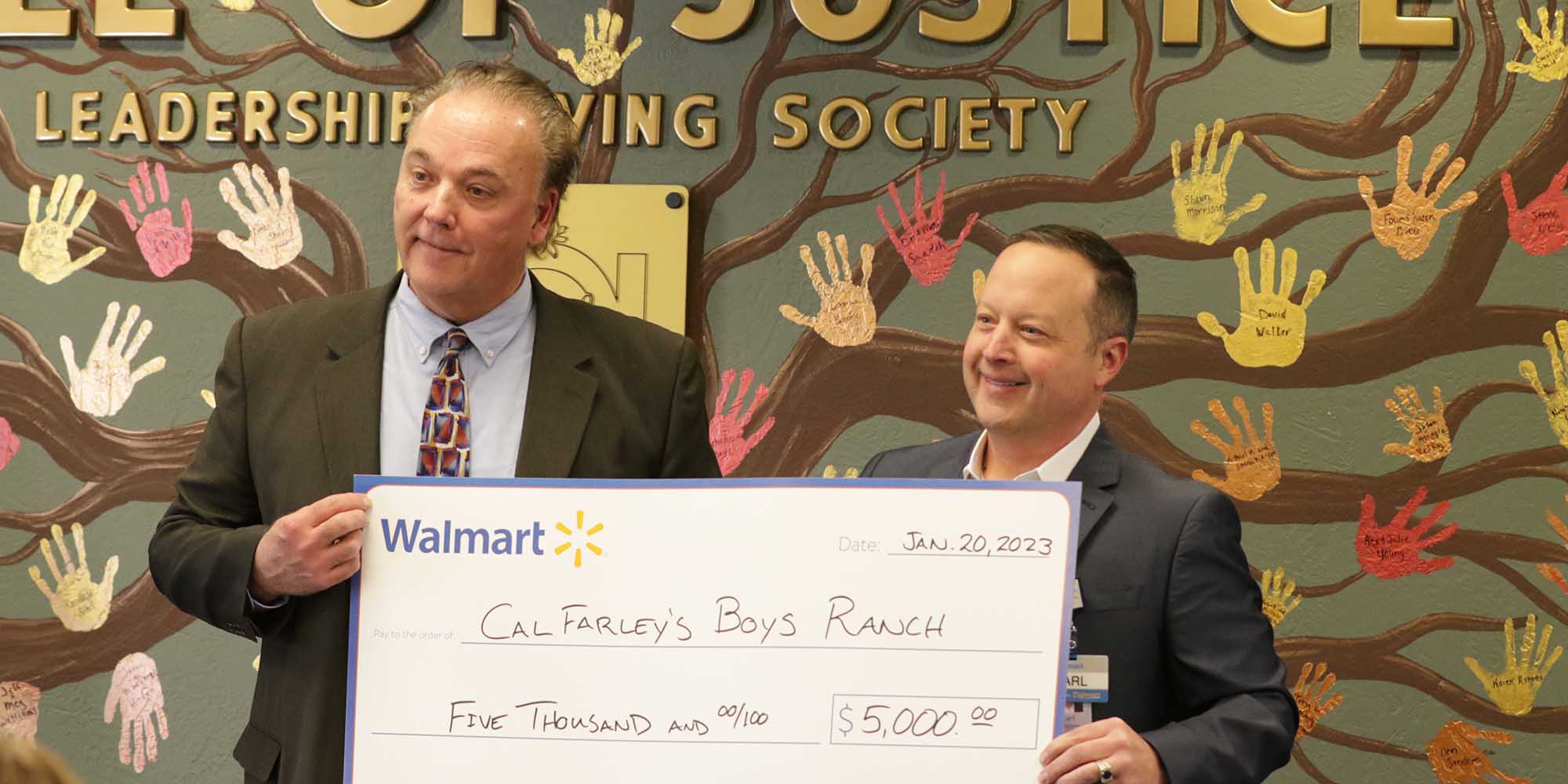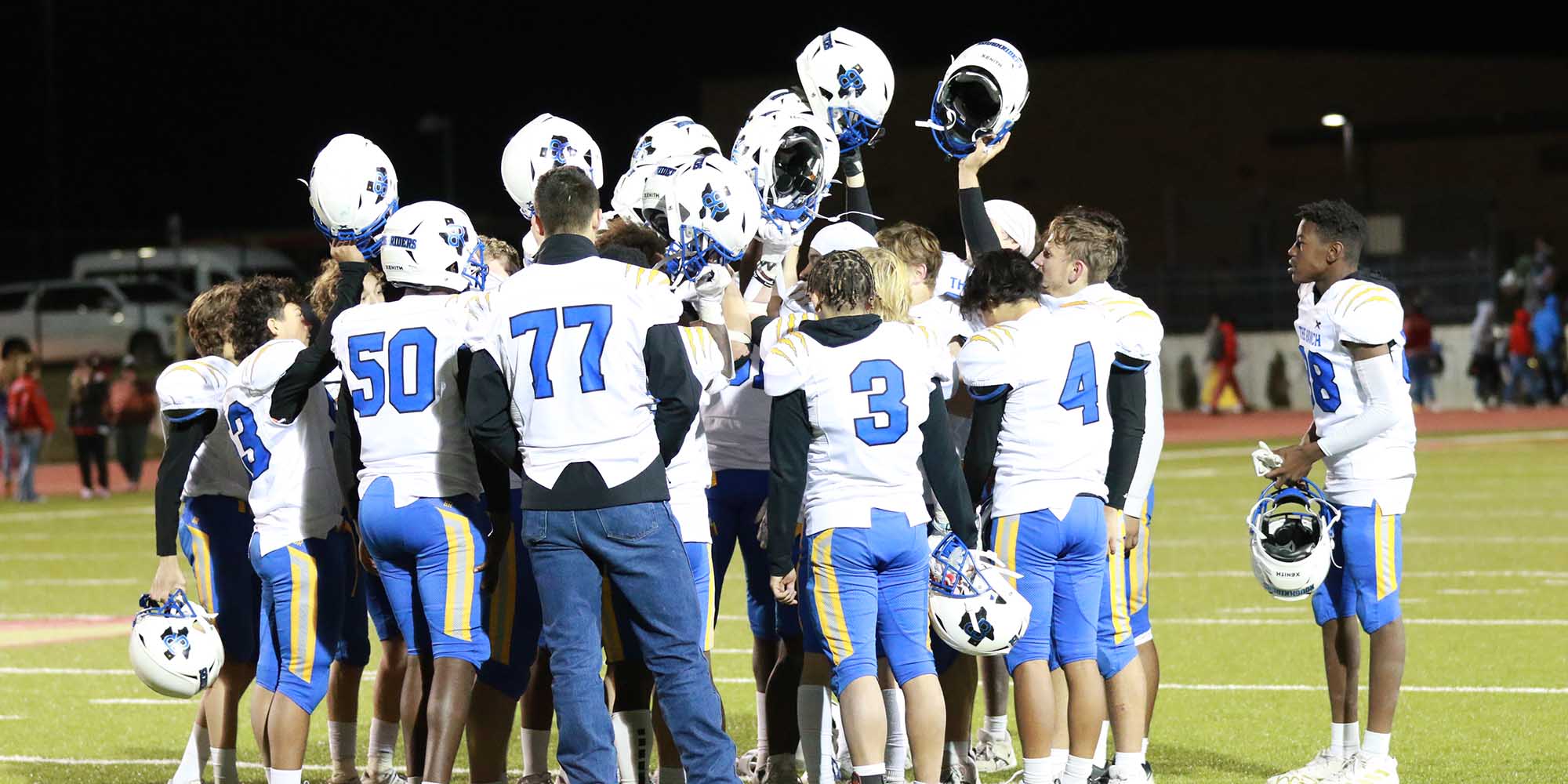Providing loving care to children who need help turning personal tragedy into triumph is the Boys Ranch mantra.
Helping a child’s heart — often deeply scarred by the absence of or abuse by others — to rise from the ashes, is our staff’s daily goal. It’s a task that takes a proverbial army of committed, healthy and qualified adults, appropriately screened and trained, to make a difference in these young lives.
“We provide training to employees to improve their knowledge, skills and behavior so our young residents receive care consistent with the Cal Farley’s Model of Leadership & Service,” explained Suzanne Wright, director of training at Boys Ranch.
Wright is referring to the six areas of universal need we nurture in our leaders, team members and, of course, the children in our care. Only when these needs — safety, belonging, achievement, power, purpose and adventure — are met are individuals freed to reach their God-given potential.

Five staff members, each with his or her own area of specialization, comprise Boys Ranch’s Training Department; all are certified trainers in Child Trauma Academy’s Neurosequential Model, created by Houston behavioral scientist Dr. Bruce Perry.
“The focus of our training is to prepare all staff to meet the needs of our residents,” Wright said, noting Boys Ranch is licensed by the State of Texas and voluntarily accredited by the New York-based Council on Accreditation. Both the state and COA mandate ongoing training for staff at residential facilities like Boys Ranch.
“We teach staff to be curious about what need a child has that motivates their behavior and to utilize our Model of Leadership & Service to meet those needs,” Wright said. “We incorporate information about how trauma impacts a child’s developing brain, how that translates into behavior. We provide staff with insights, tools and support to meet each individual resident’s needs.”
Wright advocates how important it is that people who are highly motivated to help children are more than adequately prepared with the skills they need.
“Here, we’re all taught to understand why our children have some of the challenges they do.”
Wright explained employees themselves must consistently have relational support available to them if, and when, they are overwhelmed or unsure how to effectively help a Boys Ranch resident cope with a situation in his or her life.
“There’s no limit to what we can achieve when this understanding is at the forefront of the work we’re all here to do,” Wright said.
Five priorities for the Boys Ranch Training Department:
- Strive to ensure Boys Ranch Christ-centered atmosphere is communicated through the information we share.
- Stay current on best practices for childcare keeping ourselves relevant and educated in order to prepare and educate the employees of Boys Ranch.
- Maintain a focus on helping children and families by equipping staff to do the work which is asked of them.
- Ensure information presented is n alignment with Boys Ranch policies/procedures, licensing standards, and our Model of Leadership and Service.
- Seek to provide on-going support to staff as they incorporate new information and skills into their daily interactions with children.













